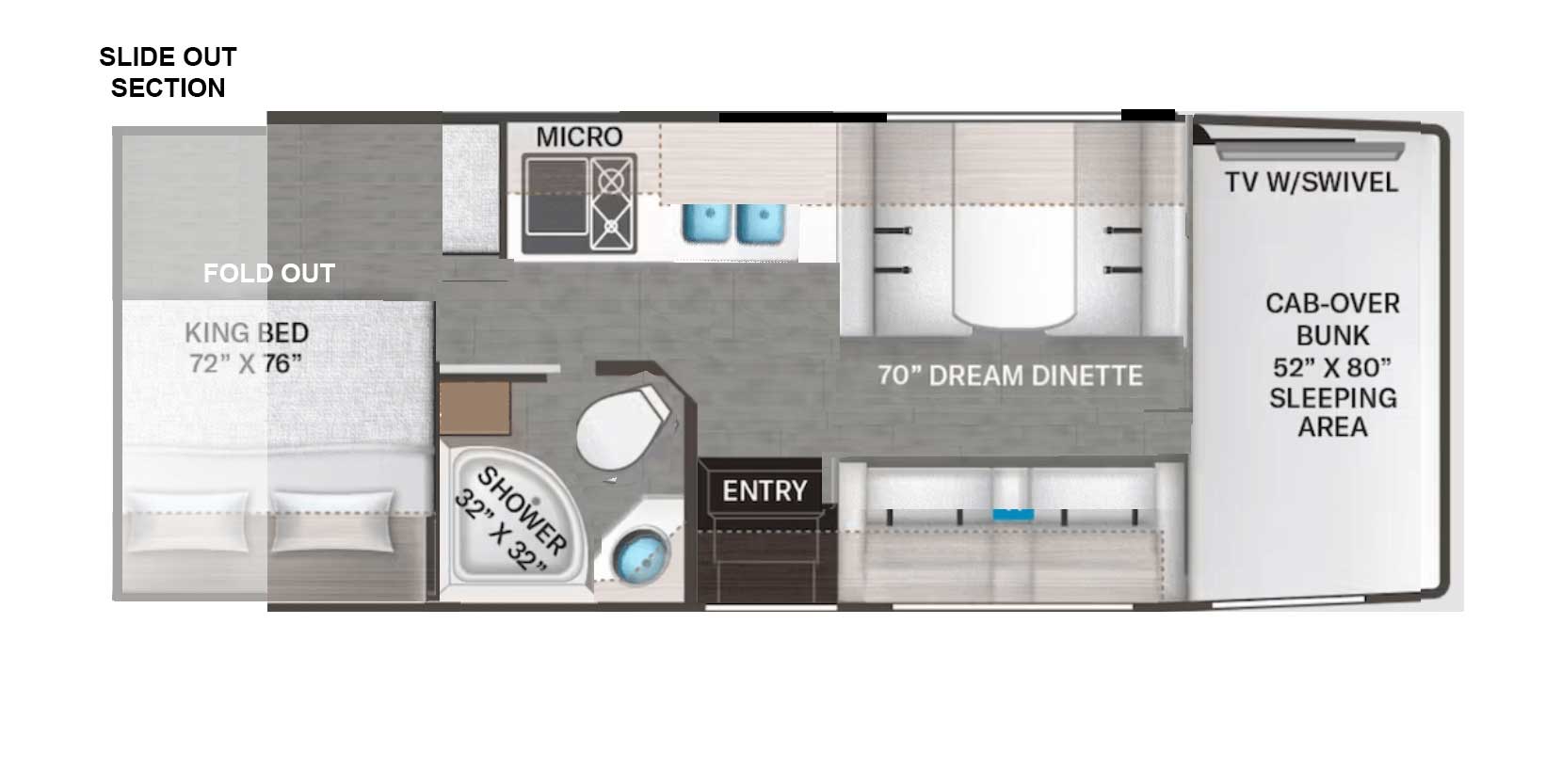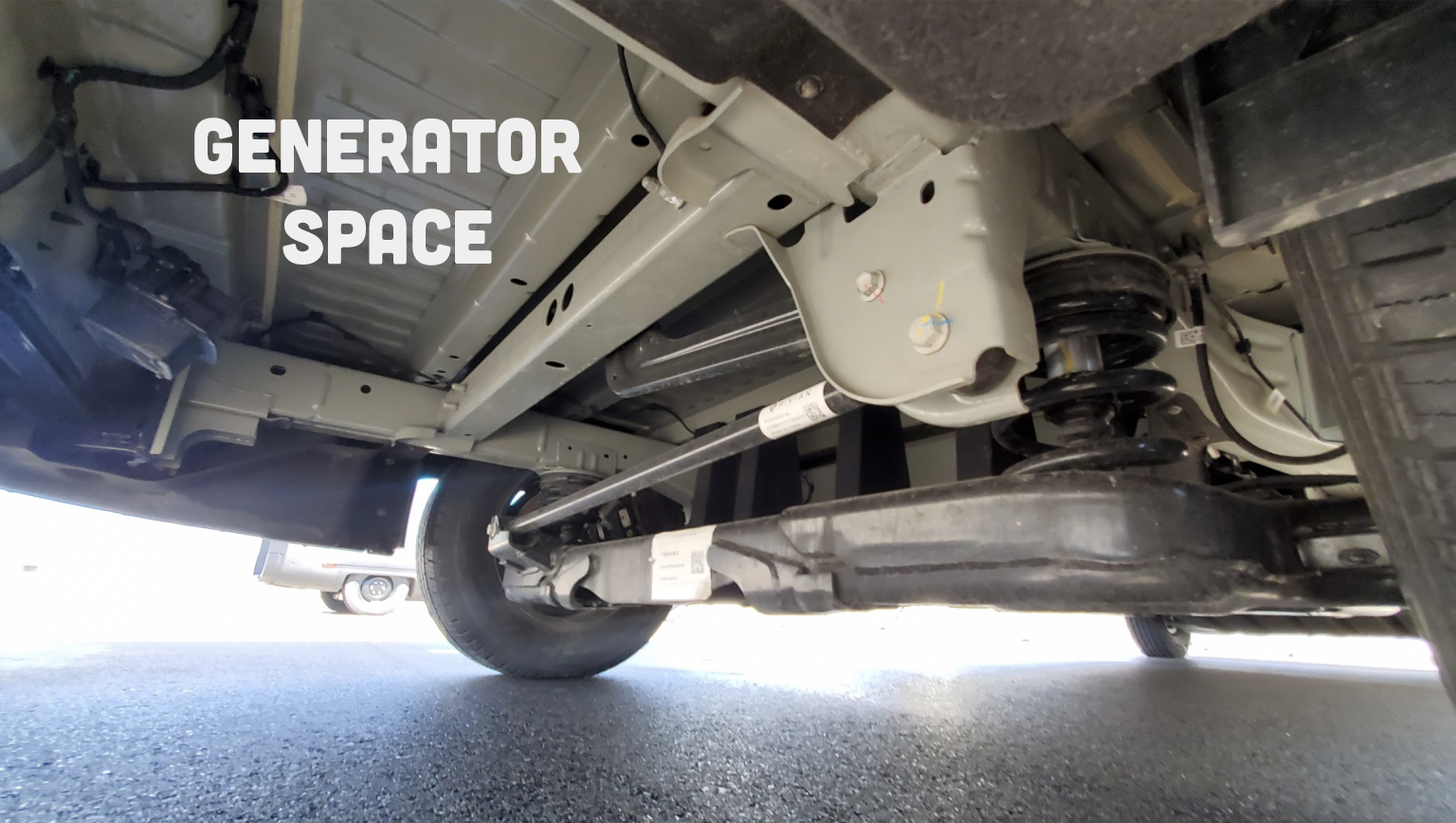
[ad_1]
It’s been said that after the second car in car-history was built, it was only ten minutes before someone suggested racing them.
In the same vein, whenever a new electric vehicle that even remotely resembles a truck or van is announced, within no time there are plans to convert it into an RV. For example, there are likely more Tesla Cybertruck campers being planned now than there are actual functioning Cybertrucks on the road today. Since the end of the pandemic, the RV craze may have cooled slightly, but the rise of EVs and improved solar powered technologies means that the hype around non-piston-powered campers will not dissipate any time soon.
![]()
There’s plenty of naysayers, of course, that claim that the idea of vehicle designed for long distance travel to areas that are often remote is the absolute worst thing to use an electric vehicle for. They certainly have a point, but I think there’s a solution that will dovetail nicely into the solutions needed for a self-contained RV.
Enter Rivian
The Rivian van has, up to now, been best known as “that new Amazon truck that plays music as it drives.” Indeed, thanks to the world’s largest online retailer, the Rivian should be soon-to-be-ubiquitous sight on roads not just in the US but also in European nations. That’s fine, but after examining these things closely (or really closely in the case of an undercarriage inspection by our own David Tracy), it would seem that there’s plenty of non-commercial users that might enjoy owning one of these things.

Naturally, when Rivian announced it would be selling “civilian” versions of its new cargo van, the Autopian staff’s first thought was the expected camper conversion.

I looked online and some people have shown renderings of a Rivian “camper”– essentially the van painted in some color with a bunch of windows on it–but I’d like to go a little deeper into what this thing might actually look like. I started with the longer Rivian 700 as opposed to the entry level Rivian 500, which is 278 inches long as opposed to 248.5 inches. The sides of the Rivian van appear to be divided up into modular sections; the shorter one has three side panels aft the front doors while the one we’re going to be using has four.


There’s 2734 pounds of payload capacity, which should be enough for all of the things that a camper entails. Look at all of that interior height! It’s 114 inches tall, so far taller than a E-Transit. Note the black plastic rear “exoskeleton” that houses the air conditioning unit on the roof and also hides things like wiring and the condensation drain. Solar panels could also sit up there are well.

It’s perfect for an RV, and there’s room above the front seats to allow for a lowering queen-sized bunk. I’ve added skylights above for maximum natural light but still allowing for privacy.

In the center of the camper are a dinette and sofa that could also be converted to sleeping space. Engine hump? What engine hump? The front seats can easily pivot to be part of the living area. The bathroom is reasonably sized for an RV this size.

Is that a single bed in the very back of the Rivian? It is, and there could be bunk above if you wanted, but the model shown has the Dream Box: the whole rear section slides out to give you a nearly king sized bed and a place for dressing. Not a bad use of space in a 23-foot long vehicle.

What about range anxiety? I mean, supposedly the long-wheelbase 700 claims to only have a range of 153 miles. Not a probem, since I’ll use a version of the solution that I jokingly described a little while back. Like all campers, the Rivian would have a generator for when you’re off of the grid. Let’s take a look at one of the exclusive pics from our man David:

See all that room beneath the back of the van? The front voids could house water tanks, but that back area could hold a decent-sized gasoline generator. Not only would you have juice at a remote campsite, but also range-extending power to charge your Rivian while driving or stopped.
The Rivian is such a clean, functional and attractive design that I think it’d be appealing even if it were powered by an internal-combustion engine. I’ll admit that I’d have as many reservations as you might about an electric RV, but a Rivian with an on-board generator makes a pretty strong argument for taking the plunge. Expect to see a lot of camper options for the Rivian soon–maybe even before the Cybertruck is ready for sale.

What I Found When I Crawled Under Rivian’s Amazon Delivery Van – The Autopian
You Can Now Buy A Rivian Van Just Like The One Amazon Uses. Here’s How Much It Costs – The Autopian
[ad_2]